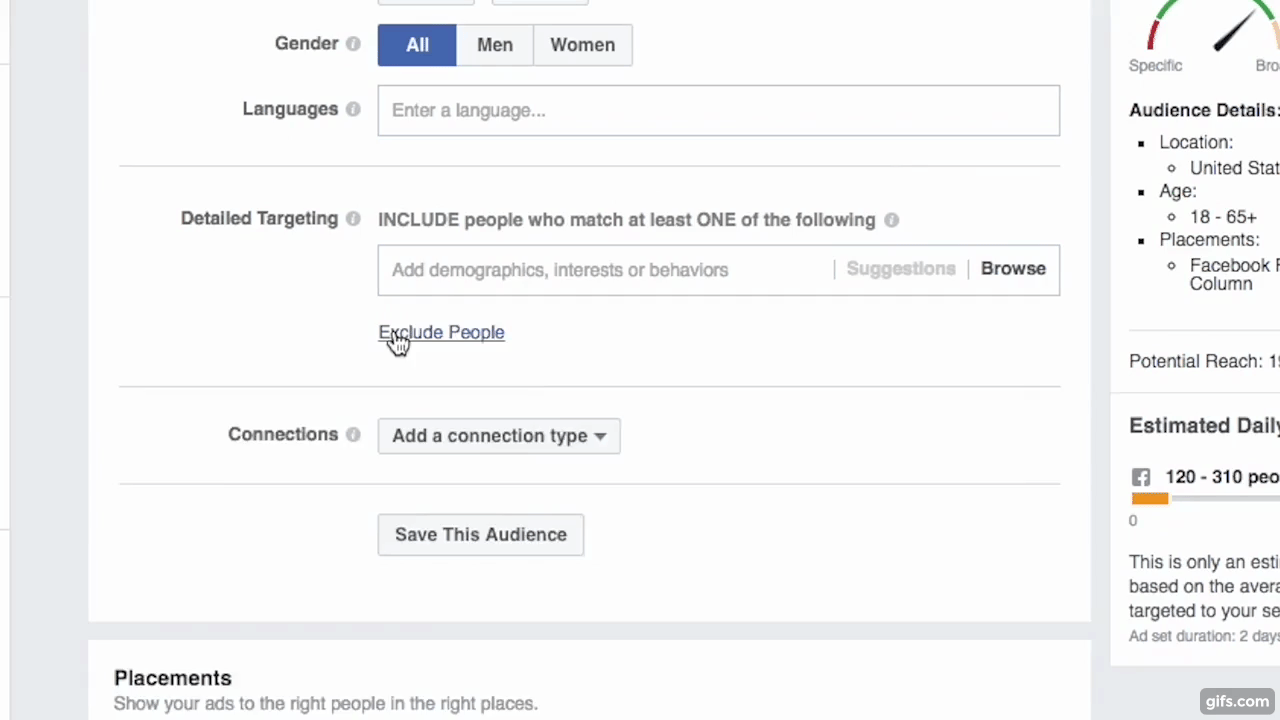This segment originally aired Nov. 14, 2016, on VICE News Tonight on HBO.Facebook never asks you about your race, but depending on what you do on the platform, it may assign you something it calls an “ethnic affinity.” For example, if you’re in Texas and occasionally write messages in Spanish, it might assign you to the “Hispanic” category.If you want to see what Facebook thinks you are, click here, and click the “Lifestyle and Culture” tab. You’ll probably find a pretty good guess at your ethnicity.Unless, of course, you’re white.That’s because Facebook has “ethnic affinity” categories for African-Americans, Asian Americans, and Latinos, but none for white people. Even if you post incessantly about pumpkin spice lattes, Donald Trump, and yacht parties, Facebook won’t put you in the “white” category, because there isn’t one.The upshot of this is that white people don’t have to worry about being victims of abuse of an advertising technique called exclusion targeting. In most cases, exclusion targeting is a legitimate marketing tool, used to ensure that companies don’t waste money on showing an ad to people who aren’t interested in it. Showing a Budweiser ad to devout Mormons, for example, isn’t a good use of Budweiser’s money — it’s better to focus on a demographic that might use its product.But exclusion targeting can also be used for some more nefarious, and potentially illegal, aims. Last month, journalists at ProPublica made an ad targeted for people who are interested in buying a home. They were able to exclude black, Asian, and Latino “affinities” from seeing the ad, and published the results. Facebook has since been hit with a lawsuit accusing it of violating federal anti-discrimination laws.In response, Facebook issued a release on Friday saying it would disable the use of ethnic affinity marketing for ads it identifies as offering “housing, employment, or credit.”That’s a good first step, but it doesn’t appear to be enough. On Friday, I bought an ad for a (fake) college fair event for students who want to learn about scholarships. By checking a few boxes under the “Demographics” tab, I was able to exclude black, Asian, and Latino “affinities” from seeing my ad — a convenient proxy that would all but ensure that nobody but white people would show up. My ad was immediately approved. I left the ad up over the weekend to see if it would get taken down. It didn’t. My credit card was charged accordingly.Since it’s not in housing, employment, or credit, advertising what is effectively a whites-only scholarship fair would seem to be technically safe under Facebook’s new rules.I emailed Facebook and asked if this kind of ad was in violation of their rules. The company wouldn’t give me a straight yes or no. Instead, a spokesperson told me that “it takes time to build the tools needed to implement these changes,” and that Facebook plans to have these changes in place early next year.“However,” the spokesperson said, “education with advertisers will begin immediately.”This brings us back around to the question of why white people aren’t being tracked and categorized in the same way as people of color are. When I asked a Facebook representative, I was told that Facebook doesn’t offer Caucasian or European American as an option for targeted (or exclusionary) advertising because advertisers have not requested those categories: “They think of these groups as more general market — or the majority of people.”If advertisers really don’t want a feature that allows them to target white people, it’s hard to argue with that. But in a lot of areas and markets, white people are hardly “general,” or even “majority.” In California, where Facebook is headquartered, for example, white people are a minority. As of mid-2015, Latinos are the state’s largest ethnic population.So even though Facebook doesn’t bother to track its white users, it’s pretty easy to block black people from seeing an ad for a doctor’s office, or keep Latinos from hearing about a tutoring service.But you can’t exclude white folks from anything
My ad was immediately approved. I left the ad up over the weekend to see if it would get taken down. It didn’t. My credit card was charged accordingly.Since it’s not in housing, employment, or credit, advertising what is effectively a whites-only scholarship fair would seem to be technically safe under Facebook’s new rules.I emailed Facebook and asked if this kind of ad was in violation of their rules. The company wouldn’t give me a straight yes or no. Instead, a spokesperson told me that “it takes time to build the tools needed to implement these changes,” and that Facebook plans to have these changes in place early next year.“However,” the spokesperson said, “education with advertisers will begin immediately.”This brings us back around to the question of why white people aren’t being tracked and categorized in the same way as people of color are. When I asked a Facebook representative, I was told that Facebook doesn’t offer Caucasian or European American as an option for targeted (or exclusionary) advertising because advertisers have not requested those categories: “They think of these groups as more general market — or the majority of people.”If advertisers really don’t want a feature that allows them to target white people, it’s hard to argue with that. But in a lot of areas and markets, white people are hardly “general,” or even “majority.” In California, where Facebook is headquartered, for example, white people are a minority. As of mid-2015, Latinos are the state’s largest ethnic population.So even though Facebook doesn’t bother to track its white users, it’s pretty easy to block black people from seeing an ad for a doctor’s office, or keep Latinos from hearing about a tutoring service.But you can’t exclude white folks from anything
Advertisement
Advertisement
